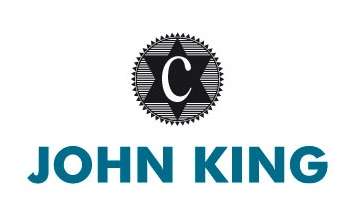
Forged Chains
Forged chains are heavy-duty chains that are manufactured using a forging process. The forging process involves shaping metal by applying compressive forces and heat to a solid piece of material, typically steel. This process provides exceptional strength, durability, and resistance to wear.
The manufacturing process of forged chains involves heating the steel to a high temperature and then shaping it using a combination of mechanical force and dies.
They are commonly used in heavy-duty applications that require robust and reliable performance including industrial machinery, construction equipment, mining and quarrying, agriculture and farming, and power generation.
The HVH team works closely with manufacturers to offer our customers the right solutions for their equipment, industry, and application
If you have any questions, write us via live chat (one of our team members will answer your questions), give us a call, or send us a quote request. The HVH team is always ready to help you.
 1(866)577-4040
1(866)577-4040
or
Forged Chains
Manufacturers
What is a Forged Chain
Forged chains are a type of chain made from metal rods that have been heated and bent into shape. The process of forging involves heating metal to a high temperature and then shaping it into a desired form by hammering or pressing it into a die, which results in a strong and more durable chain than those made from welded parts.
To make a forged chain, a metal rod is heated to a temperature of around 2000°F (1093°C) in a forge and then placed in a die and struck with a hammer or press to shape it into a link. Once the link is formed, it is removed from the die and allowed to cool. The cooled link is then joined to the next link in the chain, either by welding or rivets. This process is repeated until the desired length of the chain is achieved.
The unique properties of forged chains make them indispensable in many industrial applications as they offer high resistance to wear and tear, low elongation, high fatigue resistance, and most notably, a remarkable degree of strength that stems from the forging process. In addition, the ability to customize the shape and size of the chain links makes them ideal for heavy-duty applications such as tow chains, lifting chains, and anchor chains.
Forged chains can be made from a variety of metals, including steel, stainless steel, aluminum, and brass. The choice of metal depends on the application and the budget of the customer. In addition, it is possible to coat forged chains with a protective material, such as zinc or chrome, in order to extend the life of the chain and protect it from corrosion.
Applications of Forged Chains:
Forged chains are mechanical components that have proven their worth in a variety of applications, ranging from agriculture to marine and architecture/construction. These chains, created through the process of high temperature and pressure shaping, offer exceptional mechanical strength and durability, making them ideal for various industries.
Forged chains are a vital component in the agricultural sector, aiding in tasks such as baling, harvesting, and plowing. They are often connected to farm machinery, maximizing power and efficiency, as well as transmitting power from one machine to another, such as from a tractor to a harvester.
Forged chains are also popular in the marine industry, where their resistance to corrosion and wear and tear makes them a valuable component. They play a crucial role in securing boats, ships, and other vessels in place, connecting anchors, buoys, and other objects, as well as securing cargo such as containers to ships and docks.
In architecture and construction, forged chains are used to support building materials and structures, as well as connect scaffolding and other temporary structures for stability and safety.
In conclusion, forged chains are a type of mechanical component with unique properties that make them ideal for many industrial applications. From construction and manufacturing to transportation and power transmission, forged chains play a vital role in many industries, providing enhanced strength, durability, and reliability. With advancements in forging technology, it is likely that forged chains will continue to play an important role in the years to come.






